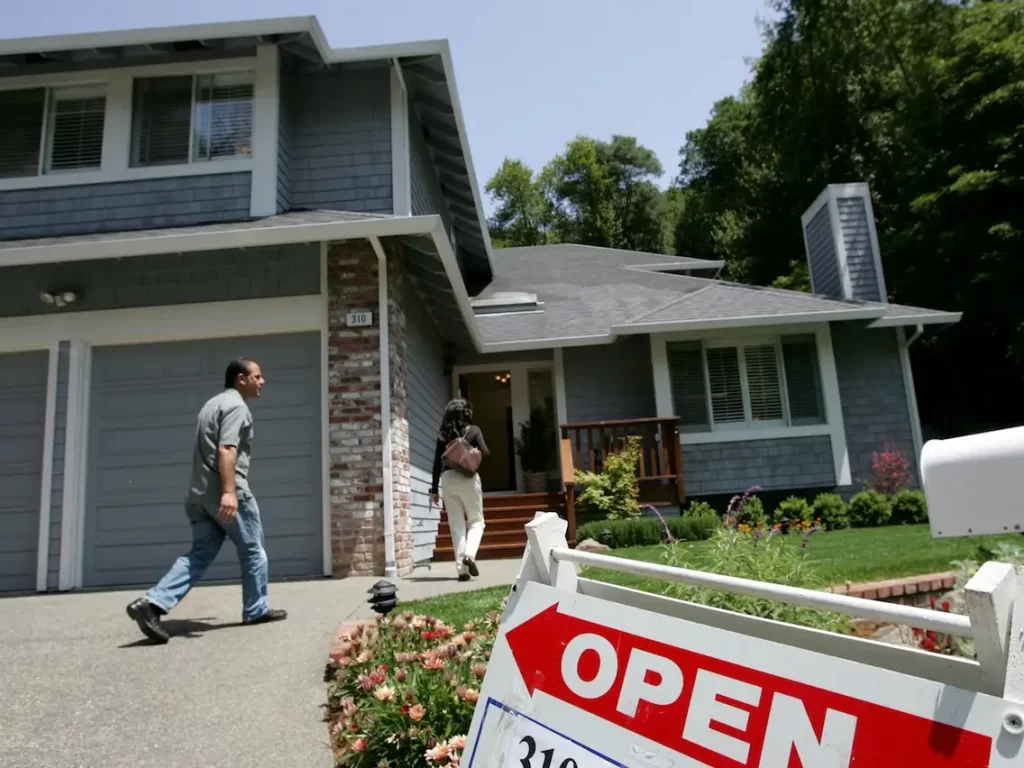Are you wondering if you can sell your late parents’ home without trudging through the lengthy probate process?
You’re not alone. Many homeowners in San Antonio face this challenging question when inheriting property after a loved one’s passing.
It’s a complicated matter, tangled with emotions and legalities.
Here’s an uplifting fact: under certain conditions, it is indeed possible to bypass probate and proceed with selling the property directly.
[gravityform id=”1″ title=”true”]
This article will guide you through alternative routes that may save you time and ease your burden.
[gravityform id=”1″ title=”true”]
We’ll explore the ins and outs of sidestepping probate, giving you clarity on how to handle this sensitive task effectively.
Take control of what seems like an overwhelming situation as we pave the way for a smoother transition ahead – keep reading to unlock these insights!
Quick Summary
- You might skip probate if the house was jointly owned with survivorship rights or put in a living trust.
- Each state has different laws, like Texas which offers alternatives such as Affidavits of Heirship for skipping probate.
- Selling your deceased parents’ house without probate in San Antonio may be possible if certain conditions are met, such as having clear title and no disputes among heirs.
- Working with professionals is key when selling without probate to avoid legal issues and speed up the process.
- Selling without probate can save time and money but comes with risks that need careful attention.
- Documents you’ll need include death certificates, proof of ownership, and possible court papers if there’s no will.

Understanding the Probate Process
Probate is the legal process of administering a deceased person’s estate. It involves proving the validity of a will, appointing an executor, and distributing assets to beneficiaries according to the will or state law.
Each state has its own probate laws and procedures that govern how property is transferred after death.
What is probate?
Probate is a legal process that happens after someone dies. It helps sort out who inherits what. The court checks the will and allows others to make claims on the estate.
If your parents left behind a house and you want to sell it, probate might be necessary.
The executor plays a key role in this process. They are chosen by the deceased person or appointed by the court if there’s no will. This person manages everything from paying debts to distributing assets like houses to heirs.
Every state has its own probate laws which decide how property gets transferred after death.
Selling real estate without a will means waiting for the court’s permission through probate unless there’s joint tenancy or a living trust involved. In these cases, property transfer can happen outside of probate, making things faster for you as an heir.
[gravityform id=”1″ title=”true”]
Role of the executor
The executor plays a crucial role in handling the deceased parent’s property. Their responsibility includes managing the estate, paying off debts, and distributing assets to beneficiaries according to the will or state laws.
When it comes to selling the house without going through probate, if there is no contest among interested parties, the executor can facilitate an informal sale efficiently without court involvement.
The authority to sell lies with the estate’s executor or administrator; hence their role is pivotal in determining whether a property can be sold without probate.
In cases where there is no will or living trust outlining who receives the property, the estate typically goes through probate to transfer assets to rightful beneficiaries.
However, if there are joint ownership arrangements with rights of survivorship or properties transferred into living trusts, it may allow for a smoother process of selling the inherited property without involving probate court.
[gravityform id=”1″ title=”true”]
Probate laws by state
When considering the possibility of selling your deceased parents’ house without going through probate, it’s crucial to understand that probate laws can vary significantly from state to state.
Homeowners in San Antonio should be particularly aware of Texas probate laws, which dictate how an estate is settled and property is distributed.
Below is an HTML table summarizing the key aspects of probate laws by state, focusing on Texas and its neighboring states to provide a broader context.
| State | Probate Process Required? | Summary Probate Available? | Notable Exceptions to Full Probate |
|---|---|---|---|
| Texas | Yes, but alternatives exist | Yes, for estates under a certain value | Affidavit of Heirship, Independent Administration, Muniment of Title |
| New Mexico | Yes, unless avoided | Yes, for smaller estates | Transfer on Death Deed, Joint Tenancy with Right of Survivorship |
| Oklahoma | Typically required | Yes, for estates valued less than $200,000 | Joint Tenancy, Payable on Death accounts |
| Louisiana | Generally required | Yes, for estates with less inventory | Usufruct, Small Succession process |
| Arkansas | Yes, with exceptions | Yes, for smaller estates | Joint Tenancy, Affidavit for Collection of Small Estate |
Selling property without formal probate may be a viable option in San Antonio.
Nonetheless, homeowners should proceed with caution and consult professionals to ensure compliance with applicable laws.
As laws change and estate situations vary, this information provides a starting point, but always seek current, state-specific advice.
Circumstances Allowing for Property Sale Without Probate
If the property was jointly owned with rights of survivorship or transferred to a living trust, you may be able to sell it without going through the probate process.
These circumstances allow for a smoother transfer of ownership and potential cost savings for the estate.
Jointly owned properties with rights of survivorship
When a property is jointly owned with rights of survivorship, it means that if one owner passes away, the surviving owner automatically inherits the deceased’s share.
This type of ownership structure bypasses probate and allows for a smooth transfer of ownership.
In this case, you may be able to sell your deceased parent’s house without going through the probate process as long as you are listed as a joint owner with rights of survivorship.
It’s important to verify the type of ownership in place and consult legal professionals for guidance on selling the property under these circumstances to ensure a seamless transition.

Properties transferred to a living trust
If your deceased parent’s house was transferred to a living trust, then it can be sold without going through the probate process.
This is because the property is no longer considered part of the deceased’s estate and is under the ownership of the trust.
Selling a house from a living trust can typically be done quickly, as there are no lengthy court proceedings involved in this scenario.
Additionally, this transfer method allows for privacy and avoids potential contestations that could arise during the probate process.
In San Antonio, understanding how properties transferred to a living trust affect inheritance and property sale without probate is crucial when navigating these complex matters.
By having the property in a living trust, you bypass many of the restrictions and delays associated with probate, providing an efficient way to sell your deceased parent’s house while minimizing legal complications.
Additional Real Estate Advice:
- Working With A Realtor To Sell Your House in San Antonio
- Tips For Selling Your House For Cash Quickly
- is Selling Your House as is a Good Idea
- How To Sell My House Fast For Cash in San Antonio
- is Now a Good Time to Sell a House
- Can You Sell a House With Termite Damage
- Moving Out of State Should I Rent or Sell My House
- is FSBO a Good Idea
- Can My Husband Sell Our Home Without Me
- Can You Sell a Property With a Lis Pendens
- Why is a Cash Offer Better When Selling a House
- Pros and Cons of Selling a House as is
- Can I Sell My House While in Foreclosure
- What is a Subject To Mortgage in Real Estate
- is it Illegal to Sell a House With Termites
- If I Sell My House Will I Lose My Food Stamps
- Sell House For Cash Pros and Cons
- is Selling Your Home by Yourself a Good Idea
- is it Better To Sell Your Home For Cash
- is Selling Your Own Home Worth it
- The Benefits of Selling a House Fast For Cash in San Antonio
- Can I Sell My House To My Friend Without a Realtor
- Why isn’t My Home Selling Faster
- When Should You Sell Your Home as is
- Is Selling Your Home and Renting a Good Idea
- is it a Good Idea to Sell My House Now
- is it Safe To Sell Your Home For Cash
- Can You Sell a House As Is Without Inspection
- is Selling Your House a Capital Gain
[gravityform id=”1″ title=”true”]
Steps for Selling Property Without Probate
Research the specific local laws and requirements regarding the sale of property without probate.
Obtain all necessary documentation, such as death certificates and proof of ownership.
Work with professionals, such as real estate agents and attorneys, to navigate the process smoothly.
Research local laws and requirements
Check the local laws in San Antonio to understand the specific requirements for selling a deceased parent’s house without probate.
Ensure you obtain clear information on property transfer regulations and any documentation needed before proceeding.
It’s crucial to be well-informed about the legal steps necessary in your area when considering this process.
Obtain necessary documentation
To sell the deceased parent’s house without probate, gather the death certificate and any will or legal trust documents. You may also need to provide identification, like a driver’s license.
If there’s no will, you’ll require additional paperwork for the court process.
A Transfer on Death Deed or Affidavit of Heirship might be helpful in proving ownership transfer.
The title company handling the property sale can guide you through specific document requirements for your situation.

Work with professionals
When dealing with the complexities of selling a deceased parent’s house without probate, it is essential to work closely with professionals who have experience in this area.
Seek out a real estate attorney or a knowledgeable real estate agent who can guide you through the legal and financial aspects of the process.
They can provide valuable insights into state-specific laws, tax implications, and potential risks associated with selling inherited property.
Additionally, consider consulting an experienced probate lawyer to ensure that all necessary documentation and procedures are followed correctly.
Their expertise will be invaluable in navigating any potential challenges that may arise during the property sale process.
[gravityform id=”1″ title=”true”]
Resources For Selling Your Home as-is:
- Need To Sell My Home Fast Pros & Cons
- How Much Does it Cost To Sell a House in Texas
- Can I Sell My Parents Home With a Power of Attorney
- Can You Sell a House With Mold in Texas
- Can You Sell Your Home With Code Violations in Texas
- Can I Sell My Home and Still Live it Rent-Free
- Can You Sell a House With a Mortgage
- Top Reasons To Sell Your House Fast
- Should I Sell My House Subject To
- Can I Sell My Deceased Parents’ House Without Probate
- How To Sell Your House Fast Without a Realtor
- Can You Sell a House With Unpaid Property Taxes
- Alternative Ways To Sell A House Quickly
- Can You Sell a Condemned House
- Can You Sell a House Before Probate
- How Soon After Chapter 7 Bankruptcy Can I Sell My House
- Top 10 Ways To Sell Your Home Quickly
- is Selling Your Home To a Real Estate Investor a Good Idea
- Is It a Good Time to Sell My House Now
- Who Buys Houses For Cash Near Me
- Paperwork For Selling a House Without a Realtor
- I Lost My Job Should I Sell My House
- Can I Refuse To Sell My House To an Investor
Benefits and Risks of Selling Property Without Probate
Selling your deceased parents’ house without going through probate can potentially save you time and money, but it also comes with potential legal risks that you need to be aware of.
To understand more about these benefits and risks, continue reading the full article.
Time and cost savings
Sell the property without probate and save time. By avoiding the formal probate process, you can expedite the sale of your deceased parents’ house. Quick resolution is possible if no contest arises.
Save on legal fees and paperwork processing time. The absence of formal probate proceedings can lead to cost savings when selling a deceased parent’s property, allowing for a faster and more efficient transfer of ownership.

Potential legal issues
Potential legal issues may arise when selling a deceased parent’s house without going through probate.
It is crucial to consider the implications of state laws, as these can vary and impact the process differently.
Additionally, ensuring that all heirs are in agreement with the property sale is essential to avoid potential disputes or contestations down the line.
Estate taxes and any outstanding debts must also be addressed to prevent complications during the selling process.
When selling a deceased parent’s house without probate, it’s important to consult professionals who can provide guidance on navigating potential legal obstacles.
Understanding the executor’s authority and responsibilities in this situation is vital for a smooth transaction and to preempt any unforeseen challenges.
In Conclusion
Selling a deceased parent’s house without going through probate is feasible under certain circumstances.
You can sell the property informally with the executor’s authority if there is no contest, ensuring a quicker process.
Understanding the legal considerations and involving professionals can help navigate potential issues when selling without probate.
Considering joint ownership or establishing living trusts may also offer avenues to bypass the probate process for property sale.
It’s crucial to research local laws and requirements and obtain necessary documentation before moving forward with the sale.
[gravityform id=”1″ title=”true”]
FAQs
1. What do I need to sell my deceased parents’ house?
To sell your deceased parents’ house, you usually go through probate unless they had a certain kind of trust or transfer-on-death deeds for estate planning.
2. Who can decide to sell a deceased person’s property?
The estate executor has the authority to sell property after someone dies. They handle the legal process and make sure everything follows the law.
3. Can you skip probate and still transfer ownership of a house?
Transferring property after death often involves probate, especially if there’s no will. But some laws might let you avoid it in certain cases.
4. Is it possible to inherit a house and then sell it right away?
Inheriting property doesn’t always mean you can sell it immediately because there are legal steps like estate transfer that sometimes have to happen first.
5. Are there rules about selling real estate when an owner dies without making a will?
Yes, each state has rules called “estate administration” that guide how to deal with selling real estate when someone passes away without leaving instructions in a will.
Cash For Houses San Antonio?
We Pay Cash For Houses in San Antonio Regardless of Condition, Location, or Price!
Get a cash offer for your San Antonio home by filling out the short online form below.
Our team of savvy real estate problem-solvers is here to guide you through our fast home selling process and give you a fair offer on your home!
[gravityform id=”1″ title=”true”]